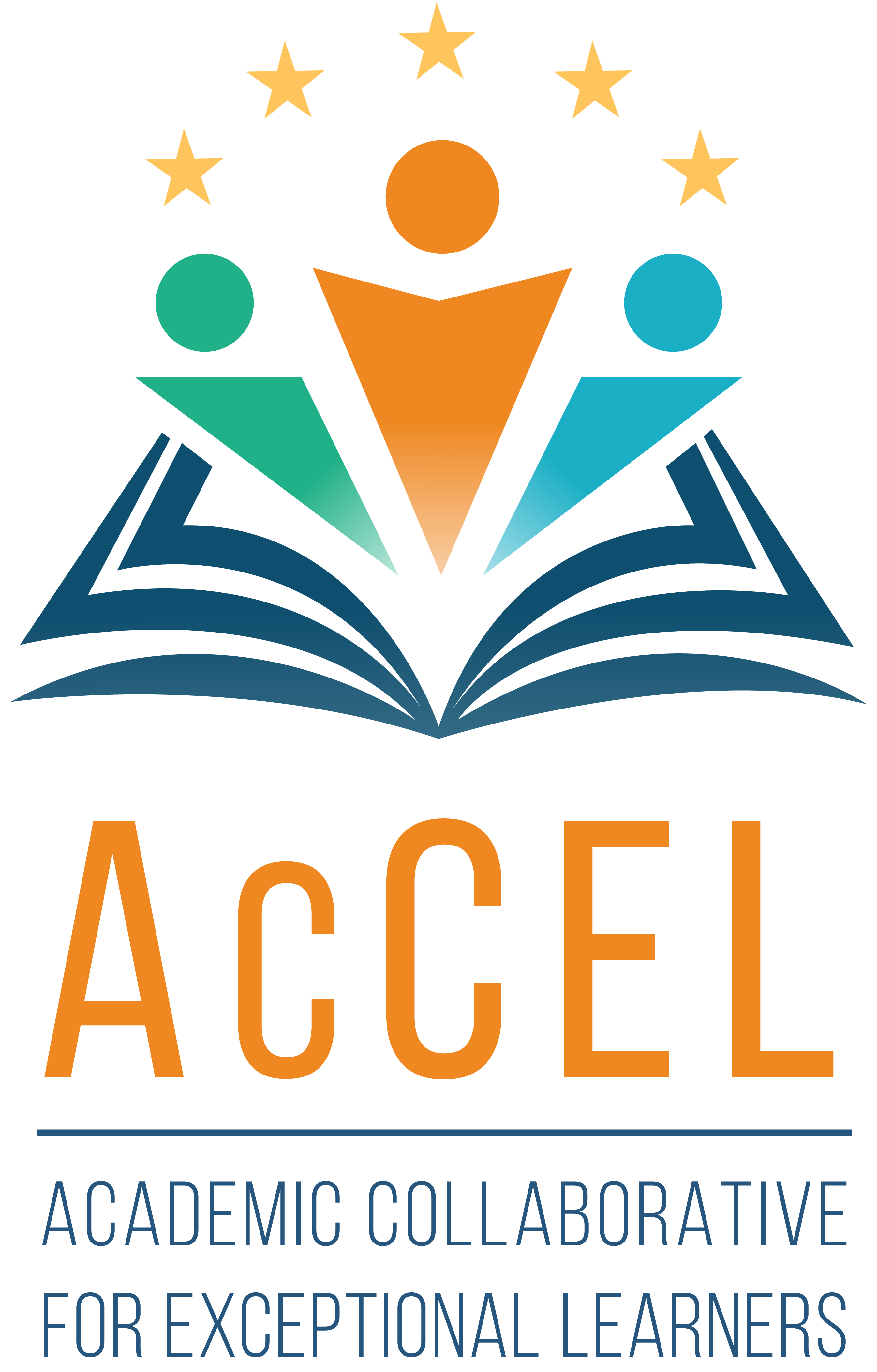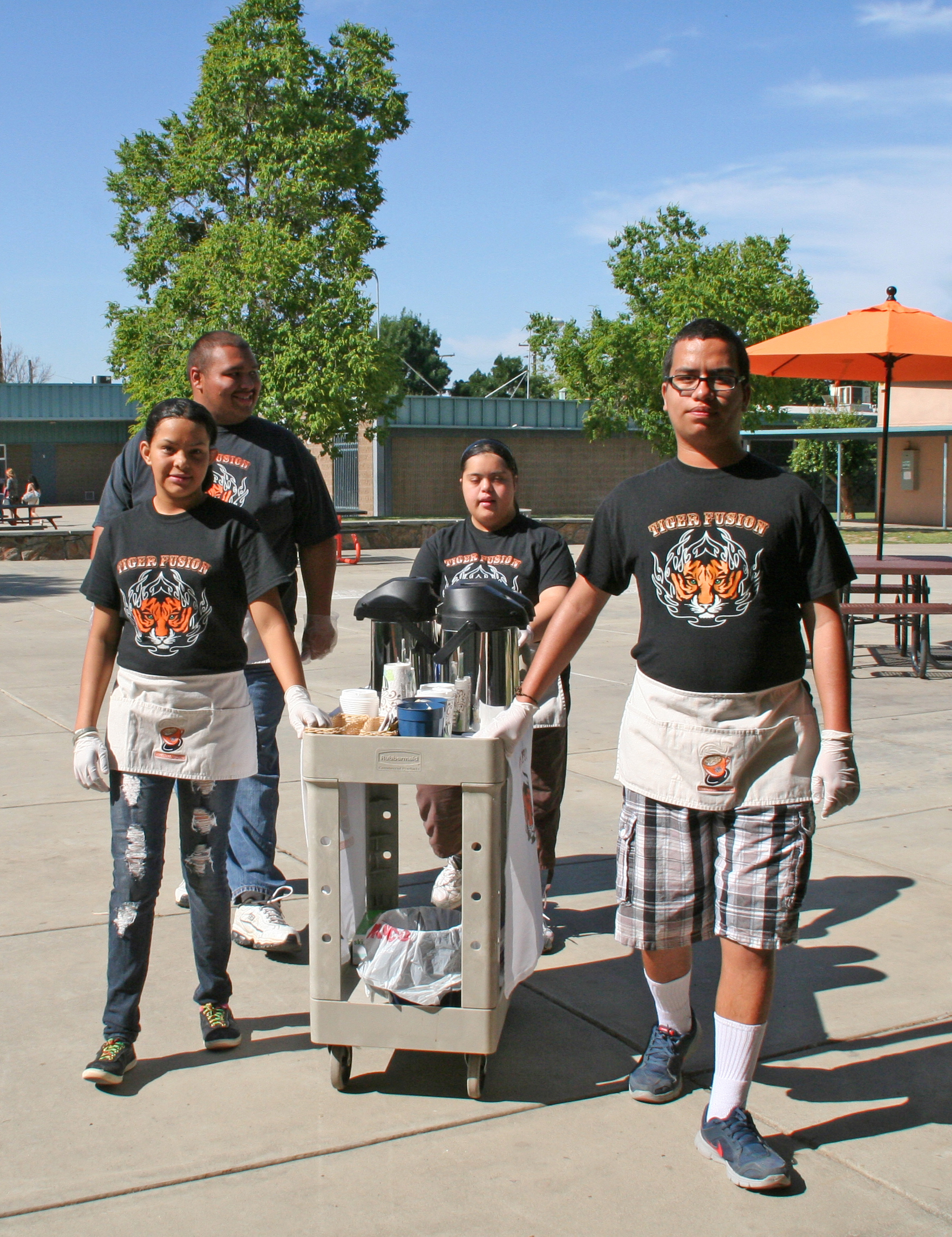 There are over 75 "satellite" classes located on school campuses. Instruction in these special
day classes is specially designed and takes place in the classroom, in other locations on the school campus, and in various locations in the community. Curriculum follows California State Standards, but is significantly modified to meet the individual
needs of students who have moderate to severe intellectual disabilities. Students interact with their typically developing peers to the maximum extent possible
There are over 75 "satellite" classes located on school campuses. Instruction in these special
day classes is specially designed and takes place in the classroom, in other locations on the school campus, and in various locations in the community. Curriculum follows California State Standards, but is significantly modified to meet the individual
needs of students who have moderate to severe intellectual disabilities. Students interact with their typically developing peers to the maximum extent possible
Students who are educated in one of the TCOE-operated special centers generally
have multiple or profound disabilities, and/or are able to function best in a more sheltered environment.
Needed services and support identified on a student's Individualized Education Program (IEP) are provided. These services include, but are not limited to:
- Speech and Language
- Audiological and Hearing
- Physical and Occupational Therapy
- Visually Handicapped
- Assistive Technology
- Psychological and Counseling
How is a child enrolled?
Students are served in satellite or center-based classes as a result of the decisions of the IEP team. Parents who believe their child should be enrolled in a TCOE-operated
special day class may contact their local school district to request an assessment and possible referral to this program.
What else should I know?
Educational programs for students with moderate to severe intellectual disabilities focus on life skills, academics, language development, vocational training, and leisure skills.
Transition Services
Beginning at age 16, a major focus of the students' program is planning for life after the school years. Individual Transition Plans are written with the goal of identifying the areas of instruction that will be most helpful in preparing students for adult life. Vocational education focuses on teaching career awareness, planning vocational objectives, assessing, and building upon job skills as necessary steps toward transition into competitive or sheltered employment. Some students participate in on-site job training and some students participate in a paid work program called WorkAbility
For more information on vocational education and the WorkAbility program, contact Jennifer Reimer at (559) 730-2910, ext.5141.
Movement Opportunities via Education (MOVE ®)

MOVE ® is an integral part of the AcCEL program in Tulare County. The program helps children and young adults who have severe physical disabilities acquire increased independence in sitting, standing, and walking.
As a result, they may gain greater mobility, better health, and enhanced personal dignity.
If students are able to sit, stand, or walk, the burden of care for families and other care providers is decreased, thereby bringing new opportunities
for fuller participation in family life, as well as integration and inclusion in the wider community.
For more information about the MOVE ® program, contact Sarah Hamilton at
(559) 730-2910, ext.5128.
Services for Students with Moderate to Severe Disabilities who have Autism Spectrum Disorders
Students who have Autism Spectrum Disorders and intellectual disability may be served in the TCOE AcCEL Program. The curriculum is specially designed – through the Individualized Education Program (IEP) process – and includes the use of such methods as PECS (Picture Exchange Communication System), visual strategies, and a variety of related
services. For additional information on educational services to students who have Autism Spectrum Disorders, visit the SELPA Autism Resources website.
Transportation Services
Special education student transportation is provided as a related service for students with an identified need. Students are transported from their home to school and back
each day. Approximately 875 students attend 64 school sites throughout Tulare County. Of these students, approximately 110 are in wheelchairs and require special care. The 77 school buses, provided under a contract with Student Transportation of America
(STA), travel more than 1.3 million miles annually, logging more than 7,500 miles each school day. Student safety and quality of service are the primary goals of the Tulare County Office of Education transportation system.
For more
information about student transportation services, contact Melody Camarillo at melodyc@tcoe.org or call (559) 730-2910, ext. 5133.
Sarah Hamilton, Administrator
(559) 730-2910, ext. 5128
sarahh@tcoe.org
- Visalia Area
Occupational Training Program
3102 E. Houston Ave., Visalia
Katrina Smith, Program Manager II
katrinas@tcoe.org
(559) 730-2910, ext. 5128
Rebecca Hendrickson, Program Manager II
rebecca.hendrickson@tcoe.org
(559) 733-1992, ext. 6510
- Tulare Area
Maple Learning Complex
509 W. Maple, Tulare
Kim Korenwinder, Program Manager II
kimberly.korenwinder@tcoe.org
(559) 688-2868, ext. 6412 - Porterville Area
L.B. Hill Learning Center
1051 S. Plano, Porterville
Jonathan Zaino, Program Manager II
jonathanz@tcoe.org
(559) 781-0843, ext. 6310 - North County
Yettem Learning Center
14246 Avenue 384, P.O. Box 247, Yettem
Jill Santivanez, Administrator I
jills@tcoe.org
(559) 528-6925, ext. 6210